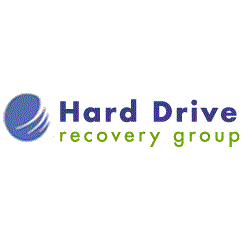|
Your hard drive crashes suddenly. What are you going to do about it? Would you consider a hard drive recovery service provider or software? It’s best to limit yourself to those two options. Doing it yourself should never be an option for you. Here’s the thing. Your hard drive contains critical data you can’t do without. Your work and personal files are stored in it. The last thing you really need is for your hard drive to crash. Unfortunately, hard drives are prone to crash. No matter how well they’re built, they’re not meant to last forever. Anything can happen to your hard drive. At a time when you least expect it, it can even fail on you.
(Via: https://demotix.com/hard-drive-recovery-how-to-do-it/) Yes, it happens. You could accidentally delete some of your files. After all, you’re only human and you’re bound to make a mistake especially if you have duplicate copies of an important file. Lucky for you, there’s a way to get back your deleted files in case you accidentally delete them.
(Via: https://demotix.com/hard-drive-recovery-how-to-do-it/) Accidental deleted files is not the only way for you to lose data. Remember, hard drives fail. There’s just no telling when; they just fail. When that time comes, you will need a hard drive recovery service.
(Via: https://demotix.com/hard-drive-recovery-how-to-do-it/) So why should you opt for a hard drive recovery service instead of using software to get your data back?
(Via: https://demotix.com/hard-drive-recovery-how-to-do-it/) Truth be told, you really need to choose between a hard drive recovery service and software. It has got to be one or the other. You can’t use both. If you opt for a software, you need to make sure that nothing goes wrong. Most importantly, you need to make sure that it’s going to work. If the software isn’t able to recover your data and you decide to turn to a hard drive recovery service for help, the latter is going to have a hard time getting the job done. A hard drive recovery service should never be your last option. Instead, it should be your only option to recover your data.
(Via: https://demotix.com/hard-drive-recovery-how-to-do-it/) Opting for a hard drive recovery service is the most reliable way to get back your data. Hence, is the reason why that particular service is something you need. You may not need it now but in the future, you will. The Hard Drive Recovery Group or HDRG provides the reliable service that you need in case you’re desperate to get back your files. If you’re wondering why HDRG is the recommended hard drive recovery service, just take a good look at what they have to offer. Their data recovery is safe and secure. What this means for you is that your critical data is protected. Why You Need A Hard Drive Recovery Service Find more on: The Hard Drive Recovery Group Blog via https://www.harddriverecovery.org/blog/why-you-need-a-hard-drive-recovery-service/
0 Comments
It's hard to stay private these days. Anyone can just search the internet to learn more you. If you don't put the settings of your social media accounts to private, then your electronic identity is open for everybody to see. You should take care of your electronic identity. Even if it seems enviable, you should do your best to manage it. Don't post everything online. Anyone can just use your perfect selfies to commit identity theft. So, while you're bragging about your perfect life online, sensitive details of your identity might already be floating around the dark web. For all you know, you've already commited a crime that you aren't even aware of. Your personal information can easily end up in the wrong hands.
If you don't believe your identity could be compromised, you're doomed. It's very easy to steal and to smear electronic identities, yours included. Identity theft is rampant.
Your electronic identity is not just available online. It's also available in various hardware devices such as your external hard drives and smart phone. So, even if you spend some time shredding documents that contain sensitive information about yourself, you could still get in trouble if you don't clean out your damaged hard drives or smartphone.
It's a lot easier to get hold of used electronics devices, especially the ones that are all set for the junk yard. Who really takes the time to clean out an old electronic device before throwing it out? Do you? So, instead of rummaging through mails, thieves go for electronic devices.
As it is, your digital footprint can easily be tracked down online. Don't make it any easier by making your electronic identity available in your ready-to-discard hard drives.
It's safe to say that you should really keep an eye on your electronic identity. You don't just do that by managing your online presence. You should also be careful with devices that store your personal information. Even if they're not yet bound for the junk yard, they might be up for repair.That is why it is also important to choose a reputable company that can repair devices like your external hard drives. The Hard Drive Recovery Group is a reputable company that guarantees secure data recovery. Your https://www.harddriverecovery.org/damaged-hard-drive.html is serviced in a class 100 clean room so that nothing ends up in the wrong hands, keeping your electronic identity safe. Is Your Electronic Identity Safe? is available on www.harddriverecovery.org via https://www.harddriverecovery.org/blog/is-your-electronic-identity-safe/ Yes! There is a difference between data security and data privacy. To understand or to, at least, see the difference between the two, let's define each one first. Data security is defined as:
(Via: https://www.itprotoday.com/security/data-privacy-and-data-security-what-s-difference) Now, let’s define data privacy.
(Via: https://www.itprotoday.com/security/data-privacy-and-data-security-what-s-difference) See the difference?
(Via: https://www.itprotoday.com/security/data-privacy-and-data-security-what-s-difference) Security expert, Cindy Compert of CTO Data Security and Privacy for IBM Security, explains the intricacies of both terms.
(Via: https://www.itprotoday.com/security/data-privacy-and-data-security-what-s-difference) These days, data privacy has become more important and complex.
(Via: https://www.itprotoday.com/security/data-privacy-and-data-security-what-s-difference) The set of tools and approaches for both data privacy and data security are quite different as well.
(Via: https://www.itprotoday.com/security/data-privacy-and-data-security-what-s-difference) It’s really important to know the difference between the two. To start with, they won’t be used interchangeably. Seriously, knowing the difference between the two terms is critical in this age of Big Data.
(Via: https://www.itprotoday.com/security/data-privacy-and-data-security-what-s-difference) One example of a company that’s doing it right is the Hard Drive Recovery Group. They understand the importance of protecting sensitive data in damaged hard drives. They boast of their very own data recovery process that offers the highest level of security. Recognized worldwide, their https://www.harddriverecovery.org/data-recovery-services.html are considered to be the safest in the industry. The article Is There A Difference Between Data Security And Data Privacy? Find more on: HDRG via https://www.harddriverecovery.org/blog/difference-between-data-security-and-data-privacy/ Data backup and storage are critical. Most of the time, we overlook them. In worst-case scenarios, we might even ignore and disregard them. Only when a disaster strikes, do we find ourselves saying, “We should have backed up!” That should never be the case. Regret is never going to get us anywhere.
(Via: https://betanews.com/2019/05/02/backup-storage-in-2019/) These days, natural disasters aren’t the only threats to the workplace. Unfortunately, there are now more as compared to before. While technology has made it easier for businesses, it has also made it more vulnerable to data loss and theft.
(Via: https://betanews.com/2019/05/02/backup-storage-in-2019/) Data protection is, no doubt, a priority. That’s the reason why data backup and storage are critical, not just in the workplace, but everywhere. As computer users, we should all think about data protection. We should never, never overlook data backup and storage. Here are three options for quick and reliable data backup and storage. The first of which requires us to make use of appliances and automation.
(Via: https://betanews.com/2019/05/02/backup-storage-in-2019/) The second option is to make use of the cloud for data backup and storage.
(Via: https://betanews.com/2019/05/02/backup-storage-in-2019/) The third option is to make use of flash drives.
(Via: https://betanews.com/2019/05/02/backup-storage-in-2019/) These three options are very reliable but if we’re really looking at data protection, we need to do more than just rely on our backups and storage. Our computer hard drive can fail us anytime. Sure, we can always rely on our backups but we also need to make sure that our data from our computer hard drive are safely and securely recovered by experts. This is where the Hard Drive Recovery Group comes in. We can rely on them for https://www.harddriverecovery.org/hard-drive-recovery.html services. That way, our data from our failed hard drive are not just recovered but are safe as well. The following blog post Backup And Storage Options We Should All Consider is republished from The Hard Drive Recovery Group Blog via https://www.harddriverecovery.org/blog/backup-and-storage-options-we-should-all-consider/ Data Recovery Services Company Discusses External Hard Drives And Cloud Backup In New Blog Posts7/16/2019 Hard Drive Recovery Group provides four new external hard drive troubleshooting tips and discusses cloud backup provider BackBlaze's latest hard drive reliability report in its latest blog posts. The company publishes blog posts twice weekly about hard drives, data recovery and data safety. External hard drives, while not new, are one of the most popular forms of data storage available today. Lower prices continue to influence buyers of the drives, which tend to connect and power themselves using a USB 3.0 port. Although these devices are often advertised as "plug-and-play", they do often malfunction, the reason behind HDRG's blog post entitled, "4 Troubleshooting Tips For Your External Drive". "External hard drives are fantastic for a lot of consumers simply because it gives them a safe, external place to backup their data," said Maureen Davies, spokesperson for Hard Drive Recovery Group. "Before external hard drives were available, backing up was often very 'Wild West', with far too many proprietary technologies available and too few inexpensive options. The USB port really made the external hard drive popular, which made a lot of backup solutions obsolete." External hard drives tend to show their minor user related issues through two avenues - their USB port and the drive itself. While they are certainly very consistent overall, USB ports can be finicky with some drives, as they enable both the connection to the computer, as well as powering the device itself. And while external hard drives are excellent as backup devices, to store photos or to carry files on the go, Hard Drive Recovery Group stresses that they should not be used as a consistent storage point for critical files. "While the newer external hard drives are better, larger and faster than they have ever been, these drives remain dangerous for consistent use mainly because of their portability," said Davies. "If used as a backup device, the drive should be used solely for that, as a slight drop or accident which may occur during regular use can create immediate data loss." In a second blog post entitled, "Cloud Backup Firm Report Shows The Importance Of Data Backup", Hard Drive Recovery Group discusses BackBlaze's most recent annual hard drive reliability report. The report notes that hard drive failures are up in their systems compared to the year before, but also notes that large drives are no more likely to fail than small drives. The report notes that the highest failure rate of the hard drives the company uses was 2.6%. That model, an HGST 12TB disk, compares well to the company's most used drives, a Seagate 12TB (with a 2.22% failure rate) and a Seagate 4TB (1.96% failure rate). The overall failure average for all hard drives used in their comprehensive backup systems was 1.56%. "This study is one of the most informative out there when it comes to reporting the consistency and failure rates of hard drives," said Davies. "What's more, it shows regular users that even industrial backup companies with millions of dollars worth of switches, expensive cooling setups and stationary drive racks experience hard drive failures." Davies notes that although BackBlaze does have drives fail, it rarely affects the customers, as redundancy is the backbone of their business. And yet, it does clearly demonstrate that one out of fifty computers may experience some kind of normal use hard drive crash. "While it is certainly possible that certain users experience less drive failures, the majority of users simply do not have the kind of setup conditions that a company like BackBlaze does," said Davies. "As a result, we tend to see that 'real world' failure rates are far higher, especially considering that laptop drives fail so often as a result of wear and tear. This is why Hard Drive Recovery Group always recommends keeping consistent backups of all important data." from Hard Drive Recovery Group The excitement sets in. You can’t wait to get a new computer. However, you have to sell your old one first. That’s not a problem because you can always sell it online. Just as soon as you delete all the data in your computer, you can start selling it online. Easy as a pie, right? Apparently, it’s not that easy. You see, you might be giving more than just a hardware. The data, you thought you deleted, could easily be retrieved by the buyer. A team of researchers purchased some second-hand hard drives on Ebay that still had some data stored on them.
Maybe the previous owners tried to delete their data or maybe they didn’t. The point is, fragments of data were easily retrieved with the use of some recovery tools. That is really scary. It's pretty evident that those hard drives weren't cleaned out well. Obviously, it takes a lot to clean out a hard drive.
Fredrik adds that manually deleting data isn’t foolproof as well.
If you have both personal and business data stored in your hard drive, you need to make sure that they’re all totally deleted. Before handing over your hard drive to its new owner, you need to make sure there aren’t any traces of your personal and business files. Keep in mind that your personal and business files are worth more than just the hard drive you’re selling. With that in mind, the most important thing for you to do before selling your old computer is to take it to the experts at https://www.harddriverecovery.org/. Their various data recovery services not only protect your personal and business files, they also ensure that your hard drive is cleaned out. Don’t take the risk of thinking that you’ve deleted all your files from your old hard drive. Let the experts do it for you. You will have peace of mind as you put your computer up for sale. The Most Important Thing To Do Before Selling Your Old Computer is courtesy of Hard Drive Recovery Group Blog via https://www.harddriverecovery.org/blog/the-most-important-thing-to-do-before-selling-your-old-computer/ Yes, your data should be backed up. It’s very important that all your computer files are backed up. If they’re not, you could lose them forever, whether you're talking about a Windows, or a Mac system. Here’s another thing to consider when it comes to data backup. Just because all your data are safely backed up to a hard drive doesn’t mean they’re safe. You need to factor in hard drive failures that can eventually compromise your data. If you’re not factoring in hard drive failures, then your backups are in danger. Here’s the reason why. Based on a report from a leading cloud backup firm, hard drive failures are on the rise.
The report shows the failure rates of the various models of Toshiba, HGST, Seagate, and WDC.
While the failure rates of the various hard drive models are quite low, the report still emphasizes the importance to back up data.
The whole point of backing up your data is to get them back immediately when the need arises. Unfortunately, you can never tell when that need is going to arise. Considering the fact that branded HDDs still fail, you can’t be totally sure of getting back your files when you need them most. What you need is a reliable solution to a hard drive failure. For Seagate data recovery, hover over to https://www.harddriverecovery.org/seagate-data-recovery.html to learn more about it. For Western Digital data recovery, visit https://www.harddriverecovery.org/western-digital-data-recovery.html. Both are useful resources for hard drive data recovery. The following blog article Cloud Backup Firm Report Shows The Importance Of Data Backup was initially published on www.harddriverecovery.org via https://www.harddriverecovery.org/blog/cloud-backup-firm-report-shows-the-importance-of-data-backup/ Hard Drive Recovery Group touches on staying productive in cases where high speed internet is not available and talks about professionally-preferred photo storage media in its latest blog posts. The company continues to offer a weekly blog with the aim to entertain and educate in a realm that few people consider "super exciting", namely "data recovery". For many years now, software companies have been structuring their applications away from desktop installable programs to those that are available over the web. Often called "software as a service", this method of software delivery does allow the developer complete control, while allowing the user to benefit from immediate patches and upgrades, among other advantages. While this does work in an environment where there is always-on high speed internet, until recently, it was relatively useless for users in remote environments where Internet access is an issue. "One of the most difficult things about the software as a service concept is that much of our daily lives are spent in zones where strong Internet is just not possible, despite smart phones," said Maureen Davies, spokesperson for Hard Drive Recovery Group. "Google has been huge in this arena, by creating smaller but fully functional versions of their software that allow people to work without Internet." The article not only addresses Google apps such as Sheets, Drive and Calendar, but also other ways to stay productive when the Internet is not available. Easily the most often forgotten, and yet most important to the data recovery world is undoubtedly taking time to clean your hard drive, and checking out your current backups to ensure that they are indeed working. "One of the things people rarely, if ever, consider is that it is very possible that the computer backups they have on hand are not actually functional," said Davies. "A time with no Internet is a fantastic time to see whether your backup software and hardware works, and if it does not, you have lots of time to address the situation before a future problem occurs." A second recent post, entitled Photographers Share Proven Ways To Organize Digital Photos, discusses not only ways to organize your photographs in the age of digital photography, but also safety tips for people looking to ensure their photos live long beyond the device they are stored on. "Because of the sheer availability of portable and external storage devices, saving your photographs can be quite easy, and certainly the large size of current external hard drives makes it possible to save them redundantly," said Davies. "We would recommend that you save any really important photographs not only to the device they were taken on, but also an external drive and a cloud service; the latter being either very cheap or free." While many photographers do automatic backups of their photos, one of the best ways to find and file your photographs is simply to have a proper labeling system. This can be as simple as creating a file and folder naming convention that includes the time and the date. "We recover photographs for professionals and amateurs alike, and one of the things that is always obvious with amateurs is that their photos tend to be managed poorly," said Davies. "In fact, we deal with far less professional photography simply because professionals are well versed on not only photo management and filing, but also consistent backups." Whether you have a lot of digital photos or very few, ensuring their safety, from things like accidental deletion or even Ransomware is always going to be key to your piece of mind. "The funny thing about digital photos is that so many people don't really care about them much until they have a hard drive failure," said Davies. "At that point, they usually begin to understand exactly what those photographs mean to them." from Hard Drive Recovery Group External hard drives are heaven sent. Even with cloud technology, physical devices, like external hard drives, are still great backup and storage options.
(Via: https://sea.pcmag.com/gallery/32439/what-to-do-when-your-external-hard-drive-wont-show-up) External hard drives are always very easy to use.
(Via: https://sea.pcmag.com/gallery/32439/what-to-do-when-your-external-hard-drive-wont-show-up) Unfortunately, no external drive is infallible. No matter what brand, an external hard drive is bound to fail.
(Via: https://sea.pcmag.com/gallery/32439/what-to-do-when-your-external-hard-drive-wont-show-up) The first tip is pretty simple. You just have to make sure that your external hard drive is plugged in and turned on.
(Via: https://sea.pcmag.com/gallery/32439/what-to-do-when-your-external-hard-drive-wont-show-up) The second troubleshooting tip is probably what you usually do when your computer can’t seem to detect your external hard drive.
(Via: https://sea.pcmag.com/gallery/32439/what-to-do-when-your-external-hard-drive-wont-show-up) The third troubleshooting tip requires you to do some updating in your computer.
(Via: https://sea.pcmag.com/gallery/32439/what-to-do-when-your-external-hard-drive-wont-show-up) The fourth troubleshooting tip requires you to dig deeper into your computer.
(Via: https://sea.pcmag.com/gallery/32439/what-to-do-when-your-external-hard-drive-wont-show-up) There are actually 2 more troubleshooting tips but they’re too technical to consider. If you’re not an expert, you might even end up damaging your external drive. If you’re not comfortable with these troubleshooting tips, it’s okay. You'll probably be more comfortable with a hard drive recovery service company that specializes in https://www.harddriverecovery.org/hard-drive-recovery-service.html. The article 4 Troubleshooting Tips For Your External Hard Drive was originally published on Hard Drive Recovery Group Blog via https://www.harddriverecovery.org/blog/4-troubleshooting-tips-for-your-external-hard-drive/ Your photos are priceless. They depict moments that can never be replicated. Thanks to smartphones, it’s so easy to seize the moment. You can take hundreds or maybe even thousands of photos to seize the moment. The only downside is that you’ll have too many photos to organize. Organizing photos, whether they’re digital or not, could be very time consuming. Unfortunately, deleting some of them could be heartbreaking as well. There really is no easy way to organize all your photos. One thing for sure, you need to back them up. Just in case.
So, how should you go about doing it? How can you organize your photos? Professional photographers share proven ways to organize your digital photos. Kenny Kim from Kenny Kim Photography recommends that you back up to the cloud.
Susan Portnoy of The Insatiable Traveler recommends stocking up on memory cards and external drives.
Travel photographer, Charlie Gardiner, uses editing software to backup and to organize his photos.
Wedding photographer Kaitlin Cooper uses a network-attached storage device.
Dan Gold from Halfhalftravel uses Backblaze to back up his hard drives.
Both Viktoria Altman of Travel Tipster and Matthew Maxey of ICON Sportswire spend time creating folders for all their photos. According to Viktoria Altman;
Here’s how Matthew Maxey does it.
Jocelyn Voo of Everly Studios uses services to send and to store her photos.
No doubt, these are great ways to organize your photos. They also add a couple of layers of protection, ensuring that your photos last longer. Nonetheless, there’s still no guarantee that they will, especially if you resort to using various hardware devices such your computer and external hard drives. They can eventually fail. That simply means a hard drive failure is inevitable. Don’t worry because there are experts who can help get back, not just your photos but everything else from your https://www.harddriverecovery.org/damaged-hard-drive.html. The blog article Photographers Share Proven Ways To Organize Digital Photos is courtesy of http://www.harddriverecovery.org via https://www.harddriverecovery.org/blog/photographers-share-proven-ways-to-organize-digital-photos/ |
About usAffordably priced Irvine, CA area data recovery services provider. Specializing in Macs, Dell, HP and IBM RAID recovery and damaged hard drive recovery services. Also offers Mac and laptop data recovery, as well as all forms of physical and logical data recovery. Archives
November 2019
Categories |









 RSS Feed
RSS Feed
